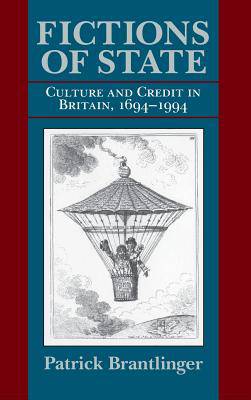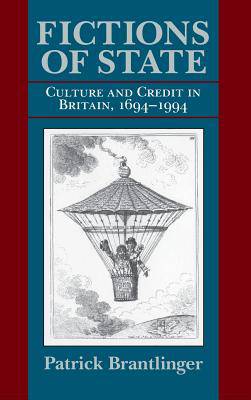
- Retrait gratuit dans votre magasin Club
- 7.000.000 titres dans notre catalogue
- Payer en toute sécurité
- Toujours un magasin près de chez vous
- Retrait gratuit dans votre magasin Club
- 7.000.0000 titres dans notre catalogue
- Payer en toute sécurité
- Toujours un magasin près de chez vous
Fictions of State
Culture and Credit in Britain, 1694–1994
Patrick BrantlingerDescription
In this ambitious book, Patrick Brantlinger offers a cultural history of Great Britain focused on the concept of "public credit," from the 1694 founding of the Bank of England to the present. He draws on literary texts ranging from Augustan satire such as Gulliver's Travels to postmodern satire such as Martin Amis's Money: A Suicide Note. All critique the misrecognition of public credit as wealth.
The economic foundations of modern nation-states involved national debt, public credit, and paper money. Brantlinger traces the emergence of modern, imperial Great Britain from those foundations. He analyzes the process whereby nationalism, both the cause and the result of wars and imperial expansion, multiplied national debt and produced crises of public credit resolved only through more nationalism and war. During the first half of the eighteenth century, conservatives attacked public credit as fetishistic and characterized national debt as alchemical. From the 1850s, the stabilizing theories of public credit authored by David Hume, Adam Smith, Henry Thornton, and others, helped initiate the first "social science" economics.
In the nineteenth century, literary criticism both paralleled and questioned early capitalist discourse on public credit and nationalism, while the Victorian novel refigured debt as the individual, private credit and debt. During the era of high modernism and Keynesian economics, the notion of high culture as genuine value recast the debate over money and national indebtedness. Brantlinger relates this cultural-historical trajectory to Marxist, poststructuralist, and postcolonial theories about the decline of the European empires after World War II, the global debt crisis, and the weakening of western nation-states in the postmodern era.
Spécifications
Parties prenantes
- Auteur(s) :
- Editeur:
Contenu
- Nombre de pages :
- 304
- Langue:
- Anglais
Caractéristiques
- EAN:
- 9780801431906
- Date de parution :
- 02-05-96
- Format:
- Livre relié
- Format numérique:
- Genaaid
- Dimensions :
- 152 mm x 229 mm
- Poids :
- 616 g

Les avis
Nous publions uniquement les avis qui respectent les conditions requises. Consultez nos conditions pour les avis.






